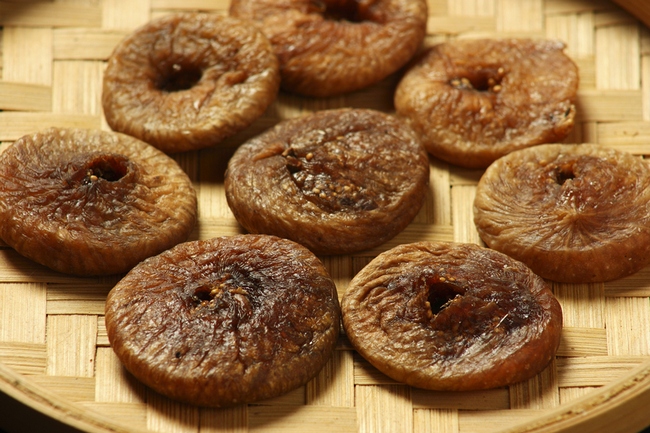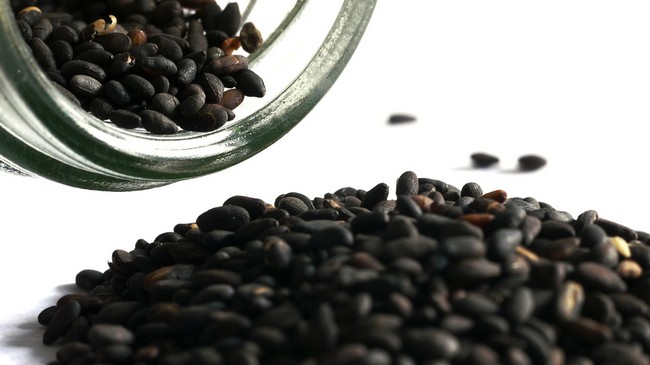- Make It Yourself Lavender Heart-Shaped Bath Bombs!
- 20 Things You Never Knew About “Down There”
- 12 Best Foods For Those Suffering From Arthritis Pain
- 12 Personal Hygiene Mistakes Almost Everyone Makes (Mom Never Told You About #4!)
- 15 Medicinal Plants And Herbs From The Cherokee People
- 12 Mind-Blowing Benefits Of Drinking Coconut Water During Pregnancy
- 12 Outstanding Winter Foods That Won’t Fatten You Up Like A Christmas Turkey
Vegans: How to Get Sufficient Calcium Without Dairy or Supplements

Photo credit: bigstock.com
If you happen to be one of the many people who are intolerant or are allergic to dairy products, you are not alone. Some experts believe that as many as 6 out of every 10 people have some type of issue with dairy products. If more than half of our population has negative responses to dairy products, it really makes you wonder if we need dairy in our diets at all, but that is another issue.
Others have chosen a vegan diet and don’t want to consume dairy products. The fact is, however, that calcium is one of the most abundant minerals in the body. Besides being necessary for bone and tooth health, it’s also vital to skin health, normal blood pressure, and muscle development.
Our RDA of calcium has been set at 1,200mg for women and 1,000mg for men each day. However, there are plenty of other things to consider. Not all the calcium we eat is actually absorbed by the body. This means that the amount we need each day can vary greatly depending on what the source of the calcium is.
Typically our bodies only absorb about 33 percent of the calcium that is found in dairy products. Other food sources are much more easily absorbed by the body. Many people recommend spinach as a source of calcium, but we actually get even less calcium from that, as only about 5 percent of the calcium in spinach is actually absorbed.
We actually need only around 300 to 400mg of absorbed calcium each day, but since our absorption rate from dairy is so poor, we often need to eat 1200 mg in order to get that 300mgs.
Then there is the matter of vitamin D and magnesium, without which calcium cannot be absorbed properly. Those who have low levels of vitamin D were shown to only absorb about 14 percent of the calcium from foods, while those with normal vitamin D levels absorbed as much as 58 percent of calcium from the foods they consumed, according to one study.
Vitamin K is another important vitamin for the absorption of calcium. Vitamin K keeps calcium in your bones and out of your muscles and arteries.
Continue to Page 2

Photo credit: bigstock.com
Can you eat too much calcium? Absolutely. The dairy industry would have you believe that the more calcium you consume the better, but this isn’t true. Eating large amounts of calcium leads to an increased risk of heart disease and kidney stones.
It’s true that diary is the most common source of calcium, but it is by no means the only source. In fact, it’s probably not even the best source. Keep reading to find out the best non-dairy food sources of calcium.
1. Bone Broth
This is one of the best sources of calcium around, not to mention a great source of other minerals. Broth can be made from the bones of just about any animal: fish, beef, chicken, bison, lamb, you name it. Boiling the bones to make a broth or soup is a great way to allow the calcium and other minerals in the bones to dissolve into the water.
2. Canned Salmon
It’s not the meat but the bones in canned salmon that contain all the calcium, so you need to mash up those bones with the rest of the meat. Don’t worry; the process of canning softens these small bones so they easily break apart. Mashed up well, you won’t even notice that they are in the meat.
3. Bok Choy
Besides vitamins A and C, bok choy is a great source of fiber and calcium. Use in stir fries or any place that you would typically use lettuce.
Continue to Page 3

Photo credit: bigstock.com
4. Almonds
You gotta love almonds! They taste great and are so nutritionally dense, you would have to be crazy to miss out on these! Almonds have potassium, iron, vitamin E, and tons of calcium. Just 20 almonds have 7 percent of your daily RDA of calcium. Almond butter anyone?
5. Dried Figs
You can’t beat figs for a sweet treat. They are also a great source of antioxidants and have a powerful calcium bang for your buck. Find out all health benefist of figs.
6. Black Eyed Peas
No, not the musical band, we are talking about good old fashioned black eyed peas. These are actually beans, but no matter what their classification, black eyed peas are loaded with folates, potassium, and calcium, just to name a few.

Photo credit: bigstock.com
7. Sesame Seeds
So much more than a topping for your hamburger bun, sesame seeds pack some serious wallop when it comes to calcium. Just one tablespoon has 9 percent of your daily requirement of calcium. Add these to your salad, stir fry, stews, or other vegetable dishes.
8. Dark Leafy Greens
Some of these are better than others at delivering the calcium. Turnip greens, collard greens, and broccoli are all great sources of easily available sources of calcium for the body.
9. Oranges
Although most people only think of oranges in terms of their vitamin C levels, oranges are actually loaded with calcium. No matter how you want to consume them, you can’t go wrong by consuming an orange as a snack or for their juice.
SEE ALSO: New Study Shows That Just One Thing Can Cause Premature Death
10. White Beans
So light and creamy, who doesn’t love white beans? These are a great way to get your iron, protein, and calcium, all in one place. Add them to your favorite pasta dish, salad, or make your own hummus using white beans.
Although many vegans turn to soy for their protein and calcium needs, that’s not really recommended. More than 90 percent of all soy grown in the US is GM soy. With so many other natural and terrific sources of calcium around, why risk your health with GM soy?
































